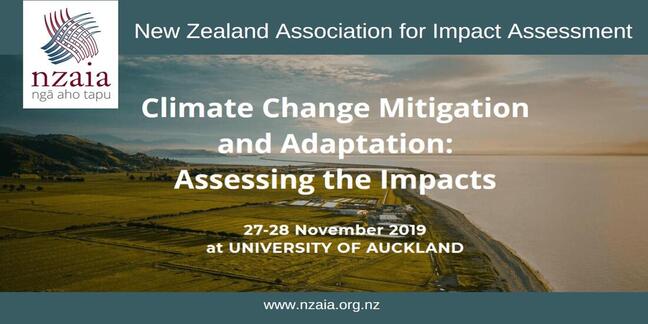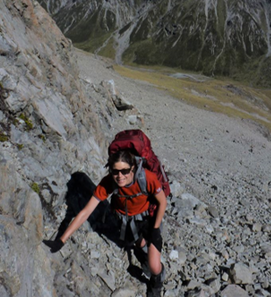- Home
- About Us
- Membership
-
Conferences
- Conference 2024 >
-
Proceedings from Past Conferences
>
- Conference 2023 >
- 2022 - Wellbeing, Sustainability and Impact Assessment: towards more integrated policy-making >
- 2021 - Social Impact Assessment >
- 2019 - Climate Change >
- 2018 - Regional Development
- 2016 - Strategic Environmental Assessment
- 2015 - Where to for Impact Assessment?
- 2014 - Transport Infrastructure
- 2013 Fresh Water Management
- 2012 - Mineral Extraction
- Sign up for updates on future conferences
-
Impact Connector
-
Issue #15 Economic methods and Impact Assessment
>
- Economic methods in impact assessment: an introduction
- The Nature of Economic Analysis for Resource Management
- The State-of-the-Art and Prospects: Economic Valuation of Ecosystem Services in Environmental Impact Assessment
- Economic impact assessment and regional development: reflections on Queensland mining impacts
- Fonterra’s policy on economic incentives for promoting sustainable farming practices
-
Issue #14 Impact assessment for infrastructure development
>
- Impact assessment for infrastructure development - an introduction
- Place Matters: The importance of geographic assessment of areas of influence in understanding the social effects of large-scale transport investment in Wellington
- Unplanned Consequences? New Zealand's experiment with urban (un)planning and infrastructure implications
- Reflections on infrastructure, Town and Country planning and intimations of SIA in the late 1970s and early 1980s
- SIA guidance for infrastructure and economic development projects
- Scoping in impact assessments for infrastructure projects: Reflections on South African experiences
- Impact Assessment for Pacific Island Infrastructure
-
Issue #13 Health impact assessment: practice issues
>
- Introduction to health impact assessment: practice issues
- International Health Impact Assessment – a personal view
- Use of Health Impact Assessment to develop climate change adaptation plans for health
- An integrated approach to assessing health impacts
- Assessing the health and social impacts of transport policies and projects
- Whither HIA in New Zealand….or just wither?
-
Issue #12 Risk Assessment: Case Studies and Approaches
>
- Introduction
- Risk Assessment and Impact Assessment : A perspective from Victoria, Australia
- The New and Adaptive Paradigm Needed to Manage Rising Coastal Risks
- Reflections on Using Risk Assessments in Understanding Climate Change Adaptation Needs in Te Taitokerau Northland
- Values-Based Impact Assessment and Emergency Management
- Certainty about Communicating Uncertainty: Assessment of Flood Loss and Damage
- Improving Understanding of Rockfall Geohazard Risk in New Zealand
- Normalised New Zealand Natural Disaster Insurance Losses: 1968-2019
- Houston, We Have a Problem - Seamless Integration of Weather and Climate Forecast for Community Resilience
- Innovating with Online Data to Understand Risk and Impact in a Data Poor Environment
-
Impact Connector #11 Climate Change Mitigation, Adaptation, and Impact Assessment: views from the Pacific
>
- Introduction
- Climate change adaptation and mitigation, impact assessment, and decision-making: a Pacific perspective
- Climate adaptation and impact assessment in the Pacific: overview of SPREP-sponsored presentations
- Land and Sea: Integrated Assessment of the Temaiku Land and Urban Development Project in Kiribati
- Strategic Environmental Assessment: Rising to the SDG Challenge
- Coastal Engineering for Climate Change Resilience in Eastern Tongatapu, Tonga
- Climate-induced Migration in the Pacific: The Role of New Zealand
-
Impact Connector #10 Climate Change Mitigation and Adaptation
>
- Introduction
- Is a “just transition” possible for Māori?
- Adapting to Climate Change on Scale: Addressing the Challenge and Understanding the Impacts of Asia Mega-Cities
- How responding to climate change might affect health, for better or for worse
- Kanuka, Kereru and carbon capture - Assessing the effects of a programme taking a fresh look at the hill and high country land resource
- Wairoa: Community perceptions of increased afforestation
- Te Kākahu Kahukura Ecological Restoration project: A story within a story
- Issue #9 Impacts of Covid-19 >
-
Issue #8 Social Impact Assessment
>
- Challenges for Social Impact Assessment in New Zealand: looking backwards and looking forwards
- Insights from the eighties: early Social Impact Assessment reports on rural community dynamics
- Impact Assessment and the Capitals Framework: A Systems-based Approach to Understanding and Evaluating Wellbeing
- Building resilience in Rural Communities – a focus on mobile population groups
- Assessing the Impacts of a New Cycle Trail: A Fieldnote
- The challenges of a new biodiversity strategy for social impact assessment (SIA)
- “Say goodbye to traffic”? The role of SIA in establishing whether ‘air taxis’ are the logical next step in the evolution of transportation
- Issue #7 Ecological Impact Assessment >
-
Issue #6 Landscape Assessment
>
- Introduction
- Lives and landscapes: who cares, what about, and does it matter?
- Regional Landscape Inconsistency
- Landscape management in the new world order
- Landscape assessment and the Environment Court
- Natural character assessments and provisions in a coastal environment
- The Assessment and Management of Amenity
- The rise of the THIMBY
- Landscape - Is there a common understanding of the Common?
- Issue #5 Cultural Impact Assessment >
- Issue #4 Marine Environment >
- Issue #3 Strategic Environmental Assessment
- Issue #2
- Issue #1
-
Issue #15 Economic methods and Impact Assessment
>
-
Resources
- Webinars
- IAIA Resources
- United Nations Guidance
- Donors Guidelines and Principles
- Oceania and the Pacific
- Natural Systems >
- Social Impact Assessment
- Health Impact Assessment >
- Cumulative Impact Assessment
- Community and Stakeholder Engagement
- Indigenous Peoples
- Climate Change and Disaster Risk Resilience >
- Urban Development
- Sustainable Development Goals
- Strategic Environmental Assessment
- Regulatory Impact Assessment
- Methods in Impact Assessment
- Community
- 2024 Calendar Year Membership Subscription Renewal
Hannah Staines
Why did you apply for the scholarship?
Both personally and professionally I have always been a very determined and driven person, motivated by helping others to overcome challenge and adversity and hold a strong sense of social justice. During my study at Lincoln I realised I wanted to utilise these attributes within the policy and planning sector. My interest in EIA was peaked during my final semester and after reading the programme for the conference I believed it would contribute to furthering my passion to give voice to members of society who are often marginalised.
Did the Conference meet your expectations?
It was the first “planning” conference I had attended, and it certainly surpassed my expectations. It was fantastic to talk with an array of professionals practicing in the field and speak about the realities of the planning world. The presentations were diverse and inspiring. I found my preconceptions about certain topics were often misguided, and instead sparked my curiosity.
Who were your favourite speakers and why?
It is hard to single out “favourites”, because I found them all valuable for various reasons. However, on reflection:
- Michael Bennett’s presentation was a standout for me. It demonstrated the realities of working with people affected by adversity, but it was evident his passion and empathy for working with people to build honest and transparent relationships has positively influenced and supported many farming communities in Canterbury.
- Naomay Tor’s presentation resonated with my own past experiences from working with communities in the Pacific. She emphasised the importance of taking a contextual approach to EIA, highlighting the value of involving local people which respects and empowers local knowledge, customs and traditions to support successful and sustainable outcomes. It made me contemplate how, despite hearing examples of this method in Aotearoa, we too can improve and learn to do this better- Definitely something to be remembered as I enter the planning profession.
- Chloe Swarbrick’s opening presentation was awe-inspiring. Holding the attention of everyone in the room, she spoke with confidence and passion. I found it particularly interesting to hear her thoughts on how social change is constructed and how it is continuously challenged by strong resolute political influences.
- Tina Porou’s presentation really hammered home the social inequalities of climate change on communities and the imperative to engage a broader perspective. It was sobering to again hear how indigenous communities are marginalised, but expected to contribute to climate change solutions which fail to ask the important questions of “what does it mean to you”? She highlighted the need for Maori to be enabled to plan for themselves through actively partnering with stakeholders, rather than responding again and again to monotonous questions. It highlighted to me the failings of many “tick-box” processes steering policies and plans and reinforced messages presented earlier by Chloe.
- I was left amazed and intrigued after listening to Anthony Kubale’s presentation regarding the significant engineering efforts planned for Kiribati. There are many questions I would like to have asked regarding the cultural and social impacts of undertaking such an immense endeavour on the local populations and am curious to understand more as the project develops.
Did anything surprise you?
I am puzzled by the apparent degrees of understanding amongst professionals who use EIA, and I wonder about the extent to which this effects policies/plans/projects. It makes me curious to consider how this could be addressed and what is needed to change these discrepancies.
Would you recommend an NZAIA Conference to other students?
Resounding YES! It was a fantastic opportunity which highlighted the realities of practicing in the policy and planning field and provided an exciting environment to talk with and learn from experienced professionals. It was the perfect way to mark the end my university studies and open the door on my new professional adventure!
Rajan Chandra Ghosh
PhD Candidate. Centre for Sustainability, University of Otago
Why did you apply for the scholarship?
This year’s NZAIA conference theme was focusing on climate change issues, which is directly relevant to my doctoral study. It attracted and invoked me a lot to get involved with the organizers and be a part of it as an active participant rather than being sleeping audience. That is why; I applied for the scholarships as it was written in the conditions that scholarship awardees will be assigned to do some tasks during the conference.
Did the Conference meet your expectations?
Yes, it is. I was expecting and seeking for an opportunity before attending the conference to discuss with and listen to international impact assessment experts’, which would help me to learn new things and networking with them.
Who were your favourite speakers and why?
Actually, this is hard to identify a few of the speakers as favourite because all of them were very engaged and communicative with their work. I liked all the sessions, but presentations which focused on Pacific issues were in my priority list as those were somehow connected and/or matched with my PhD research.
Did anything surprise you?
Obviously! In this conference, there were diverse range of participants’ viz. academics, researchers, policymakers, and practitioners. I found it very surprising and effective as well because anyone can discuss on any relevant issues and get to know different views from different stakeholders.
Would you recommend an NZAIA Conference to other students?
Sure thing, because I think this is the right place for the students who work and/or intend to work in the impact assessment issues to know more about things what is happening in this area of research around the world more specifically, in the Pacific.
I would like to thank the organizers and NZAIA scholarship selection committee.
I would like to thank the organizers and NZAIA scholarship selection committee.
Yvonne Takau
Policy Planner
Why did you apply for the scholarship?
In my first year of the Master of Planning, I took the EIA paper as my one optional paper. EIA was also discussed briefly throughout the key planning practice paper. Despite this, I still felt like there was a bit of a disconnect and that I didn’t really understand how planning and EIA intertwined. It was not until I started a planning internship that summer that I realised what an integral part the EIA/AEE was of the resource consent process (i.e. planning). The NZAIA Conference seemed like a great place to form connections and fully appreciate the field of EIA. The Conference definitely delivered! I was able to get a holistic view of what EIA encompassed and what it was all about, and I met so many great people who were keen to explain what their work/research involved and how it was connected to EIA.
Did the Conference meet your expectations?
The conference exceeded my expectations! I had so much fun and learnt so much. The Conference made me realise how wide-ranging EIA/AEE was.
Who were your favourite speakers and why?
1) Tina Porou because it was particularly interesting to hear about how the Zero Carbon Bill which has largely been hailed as a major step forward for New Zealand and in everyone’s best interest, failed to fully take account of tangata whenua aspirations, especially as I was preparing to step into a role where I would be advocating on behalf of mana whenua.
2) Alistair Woodward because my Master’s thesis briefly looked at human health implications of urbanisation, with a focus on developing Pacific countries so it was a really enlightening talk for me.
2) Alistair Woodward because my Master’s thesis briefly looked at human health implications of urbanisation, with a focus on developing Pacific countries so it was a really enlightening talk for me.
Did anything surprise you?
The amazing Pacific presence at the conference. It was so good to connect with people in SPREP as well as other Pasifika practitioners here in New Zealand.
Would you recommend an NZAIA Conference to other students?
100% ! I especially loved the discussion session on the last day as those of us who were a tad too shy to speak up and ask questions during the talks were able to engage in discussion with the speakers and other participants on topics that we were all interested in. I think that so many students in the field of planning and other related fields could really benefit from attending at least one of the NZAIA conferences.
NZAIA Incorporated is a registered charity
#CC54658
This website and all its content is SSL Protected.
Privacy Policy
#CC54658
This website and all its content is SSL Protected.
Privacy Policy
- Home
- About Us
- Membership
-
Conferences
- Conference 2024 >
-
Proceedings from Past Conferences
>
- Conference 2023 >
- 2022 - Wellbeing, Sustainability and Impact Assessment: towards more integrated policy-making >
- 2021 - Social Impact Assessment >
- 2019 - Climate Change >
- 2018 - Regional Development
- 2016 - Strategic Environmental Assessment
- 2015 - Where to for Impact Assessment?
- 2014 - Transport Infrastructure
- 2013 Fresh Water Management
- 2012 - Mineral Extraction
- Sign up for updates on future conferences
-
Impact Connector
-
Issue #15 Economic methods and Impact Assessment
>
- Economic methods in impact assessment: an introduction
- The Nature of Economic Analysis for Resource Management
- The State-of-the-Art and Prospects: Economic Valuation of Ecosystem Services in Environmental Impact Assessment
- Economic impact assessment and regional development: reflections on Queensland mining impacts
- Fonterra’s policy on economic incentives for promoting sustainable farming practices
-
Issue #14 Impact assessment for infrastructure development
>
- Impact assessment for infrastructure development - an introduction
- Place Matters: The importance of geographic assessment of areas of influence in understanding the social effects of large-scale transport investment in Wellington
- Unplanned Consequences? New Zealand's experiment with urban (un)planning and infrastructure implications
- Reflections on infrastructure, Town and Country planning and intimations of SIA in the late 1970s and early 1980s
- SIA guidance for infrastructure and economic development projects
- Scoping in impact assessments for infrastructure projects: Reflections on South African experiences
- Impact Assessment for Pacific Island Infrastructure
-
Issue #13 Health impact assessment: practice issues
>
- Introduction to health impact assessment: practice issues
- International Health Impact Assessment – a personal view
- Use of Health Impact Assessment to develop climate change adaptation plans for health
- An integrated approach to assessing health impacts
- Assessing the health and social impacts of transport policies and projects
- Whither HIA in New Zealand….or just wither?
-
Issue #12 Risk Assessment: Case Studies and Approaches
>
- Introduction
- Risk Assessment and Impact Assessment : A perspective from Victoria, Australia
- The New and Adaptive Paradigm Needed to Manage Rising Coastal Risks
- Reflections on Using Risk Assessments in Understanding Climate Change Adaptation Needs in Te Taitokerau Northland
- Values-Based Impact Assessment and Emergency Management
- Certainty about Communicating Uncertainty: Assessment of Flood Loss and Damage
- Improving Understanding of Rockfall Geohazard Risk in New Zealand
- Normalised New Zealand Natural Disaster Insurance Losses: 1968-2019
- Houston, We Have a Problem - Seamless Integration of Weather and Climate Forecast for Community Resilience
- Innovating with Online Data to Understand Risk and Impact in a Data Poor Environment
-
Impact Connector #11 Climate Change Mitigation, Adaptation, and Impact Assessment: views from the Pacific
>
- Introduction
- Climate change adaptation and mitigation, impact assessment, and decision-making: a Pacific perspective
- Climate adaptation and impact assessment in the Pacific: overview of SPREP-sponsored presentations
- Land and Sea: Integrated Assessment of the Temaiku Land and Urban Development Project in Kiribati
- Strategic Environmental Assessment: Rising to the SDG Challenge
- Coastal Engineering for Climate Change Resilience in Eastern Tongatapu, Tonga
- Climate-induced Migration in the Pacific: The Role of New Zealand
-
Impact Connector #10 Climate Change Mitigation and Adaptation
>
- Introduction
- Is a “just transition” possible for Māori?
- Adapting to Climate Change on Scale: Addressing the Challenge and Understanding the Impacts of Asia Mega-Cities
- How responding to climate change might affect health, for better or for worse
- Kanuka, Kereru and carbon capture - Assessing the effects of a programme taking a fresh look at the hill and high country land resource
- Wairoa: Community perceptions of increased afforestation
- Te Kākahu Kahukura Ecological Restoration project: A story within a story
- Issue #9 Impacts of Covid-19 >
-
Issue #8 Social Impact Assessment
>
- Challenges for Social Impact Assessment in New Zealand: looking backwards and looking forwards
- Insights from the eighties: early Social Impact Assessment reports on rural community dynamics
- Impact Assessment and the Capitals Framework: A Systems-based Approach to Understanding and Evaluating Wellbeing
- Building resilience in Rural Communities – a focus on mobile population groups
- Assessing the Impacts of a New Cycle Trail: A Fieldnote
- The challenges of a new biodiversity strategy for social impact assessment (SIA)
- “Say goodbye to traffic”? The role of SIA in establishing whether ‘air taxis’ are the logical next step in the evolution of transportation
- Issue #7 Ecological Impact Assessment >
-
Issue #6 Landscape Assessment
>
- Introduction
- Lives and landscapes: who cares, what about, and does it matter?
- Regional Landscape Inconsistency
- Landscape management in the new world order
- Landscape assessment and the Environment Court
- Natural character assessments and provisions in a coastal environment
- The Assessment and Management of Amenity
- The rise of the THIMBY
- Landscape - Is there a common understanding of the Common?
- Issue #5 Cultural Impact Assessment >
- Issue #4 Marine Environment >
- Issue #3 Strategic Environmental Assessment
- Issue #2
- Issue #1
-
Issue #15 Economic methods and Impact Assessment
>
-
Resources
- Webinars
- IAIA Resources
- United Nations Guidance
- Donors Guidelines and Principles
- Oceania and the Pacific
- Natural Systems >
- Social Impact Assessment
- Health Impact Assessment >
- Cumulative Impact Assessment
- Community and Stakeholder Engagement
- Indigenous Peoples
- Climate Change and Disaster Risk Resilience >
- Urban Development
- Sustainable Development Goals
- Strategic Environmental Assessment
- Regulatory Impact Assessment
- Methods in Impact Assessment
- Community
- 2024 Calendar Year Membership Subscription Renewal



